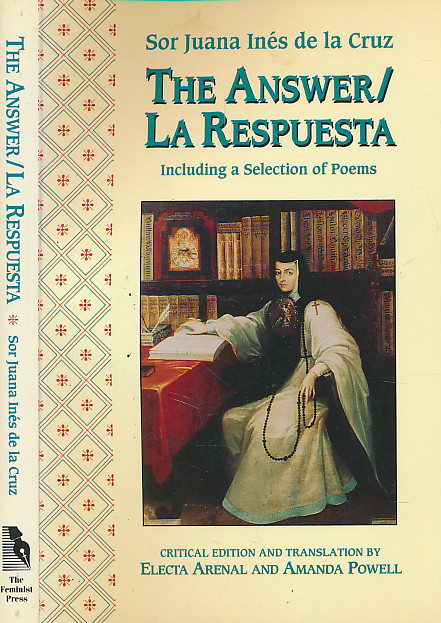The Answer / La Respuesta
€4,00
Nema na zalihi
| Težina | 265 g |
|---|---|
| Format | 14 × 21 cm |
| Autor | |
| Izdavač | |
| Mjesto izdanja | New York |
| Godina | 1994 |
| Broj stranica | 196 |
| Uvez | Meki |
| Stanje knjige | Vrlo dobro |
Sor Juana In&ecute;s de la Cruz (1648/51-1695), a Mexican nun, wrote this essay which is a defense of the right of women to be engaged in intellectual work. Her writings brought her into conflict with the Church. Juana Inés de la Cruz was born in a town in the Valley of Mexico to a Creole mother Isabel Ramírez and a Spanish military father, Pedro Manuel de Asbaje. As a child, she learned Nahuatl (Uto-Aztec language spoken in Mexico and Central America) and read and write Spanish in the middle of three years. Thanks to her grandfather’s lush library, Juana Inés de la Cruz read the Greek and Roman classics and the theology of the time, she learned Latin in a self-taught way. In 1665, admired for her talent and precocity, she was lady-in-waiting to Leonor Carreto, wife of Viceroy Antonio Sebastián de Toledo. Sponsored by the Marquises of Mancera, she shone in the viceregal court of New Spain for her erudition and versifying ability. In 1667, Juana Inés de la Cruz entered a convent of the Discalced Carmelites of Mexico but soon had to leave due to health problems. Two years later she entered the Order of St. Jerome, remaining there for the rest of her life and being visited by the most illustrious personalities of the time. She had several drawbacks to her activity as a writer, a fact that was frowned upon at the time and that Juana Inés de la Cruz always defended, claiming the right of women to learn. Shortly before her death, she was forced by her confessor to get rid of her library and her collection of musical and scientific instruments so as not to have problems with the Holy Inquisition, very active at that time. She died of a cholera epidemic at the age of forty-three, while helping her sick companions. The emergence of Sor Juana De La Cruz in the late seventeenth century was a cultural miracle and her whole life was a constant effort of stubborn personal and intellectual improvement. by Sor Juana Ines de la Cruz (Author), Electa Arenal (Translator), Amanda Powell (Translator)
